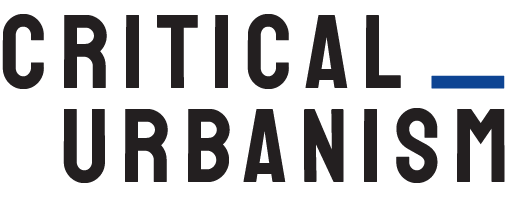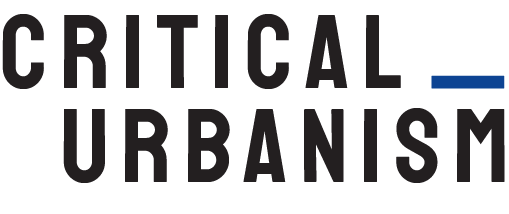
“Critical Urban Pedagogy” – Interview with Miodrag Kuč
Can you give us an insight into how critical urban pedagogy became part of ZK/U? Did it evolve from specific artistic projects?
Critical Urban Pedagogy (CUP) emerged as a consequence of placing a hybrid institution, such as ZK/U, in the socially challenging district of Moabit. In conditions of accelerated gentrification, limited access to knowledge infrastructures, urban poverty and over-bureaucratised administration, CUP methods helped to bridge global discourses with local practices and addressed the gaps produced by a series of social injustices. On the other hand, CUP also widens the spectrum of actors involved in both formal urban planning and diverse spatial productions. Concretely, it sensitises our artists/scientist-in-residence to sharpen their focus when it comes to urban inequalities and urban research in general.
How would you define critical urban pedagogy? Which elements of this approach are not yet covered by the academic teaching and learning of architecture, arts or urbanism?
Interestingly, CUP came about initially as a play on words, combining critical urban studies and critical pedagogy. In this context, the use of the word ‘critical’ serves to suggest that critical theory is in the centre of research and action: particularly through a search for emancipation by identifying and challenging power structures. Additionally, the prefix ‘critical’ also proposes a critical attitude towards the status-quo and cultivates a politics of disagreement. CUP also makes an effort to expand Freire’s notion of critical pedagogy, and move it from the classroom or theatre into the urban political arena. By doing so, CUP diversifies the ways in which we perceive, contest and defend public spaces and institutions. Finally, CUP includes spatiality as a component in the process of (collective) learning.
In relation to formal education, CUP enlarges the spectrum of spatial thinking, underlines the political dimension in technocratic decision-making processes and aims to develop mechanisms enabling marginalised communities to reclaim certain rights. One can say that CUP is a sort of interface knowledge situated between classical studies of architecture/urban planning (focussing too much on design), social sciences (explaining, but not acting) and the arts (predominately egocentric). CUP looks for urban practices that are more inclusive, horizontal and empowering.
You work across quite different socio-geographical contexts. Do you develop critical urban pedagogy as some kind of universally shared practice? Or is it something intended rather for hyper-complex metropolitan centres like Berlin?
CUP as method and practice is definitely of a global scale: it also includes rural areas, urban peripheries and isolated communities. We work beyond an urban-rural dichotomy and understand interrelations between spatial-scales as dynamic process of negotiations, contestations and conflicts. In this sense, we use for example critical/collective cartography to work with indigenous communities or we use art in public space to work with urban youth.
Naturally, metropolitan areas such as Berlin offer a great density of interactions which produce more urban conflicts, hybrid places/institutions and inequalities in general. However, it is not possible anymore to look only at urban centres as accumulations of wealth and infrastructures. If we were to take a look at my breakfast today, you can see quinoa from South-America, yogurt from Holland, apples from Germany, dates from Saudi-Arabia and honey from Serbia: a global network of relations is needed to bring all this to my table in Berlin.
Could you give some examples of the formats of teaching and learning you use, as well as of the kinds of tasks you assign?
The formats are tailored according to the group structure, timeframe and purpose of the action. CUP always starts with a research question that frames the challenge and ends up with a new one that is produced through a process of collective inquiry. This process is not circular or linear, but rather looped and somewhat chaotic.
For example, we use role-playing to assign certain social roles to participants, usually ones that are unknown or uncomfortable. An urban anthropologist becomes a foreign investor and needs to build a garage on a former public park. Understanding all the ‘stakeholders’ in the urban arena is for CUP of vital importance. Only in this way can we build a proper argument in the next phase of research.
The project Rethinking Open-Form could be a good example of this sort of stakeholder analysis and activation. Framed around the dramatic changes of housing estates build between the ’60s and ’80s in Eastern Europe, this project looks at the archaeology of modernism through the perspective of urban anthropology, political education, visual/cultural studies and real-estate development.

Photo by Miodrag Kuč
We use urban-forensics in order to research discarded artefacts and re-create narratives that are speculative but form the dramaturgy needed for a particular urban intervention. We also use creative protests (even sometimes pranks) and revive abandoned public institutions in order to boost a group’s political education or capacity for disagreement.
An example of this approach is definitely the project MO Hartera – kvARTera (Local Council Hartera) which we did in the framework of European Cultural Capital Rijeka 2020 (ECoC), in collaboration with local grass-root communities and students. Forgotten urban heritage and political education were at the centre of diverse communal actions, infrastructural improvements and pedagogical formats. After ECoC vanished, our programs and micro-infrastructures are one of the rare ones still active in the post-eventisation silence.

photo by Kristian Vučković
In all CUP formats, we dismantle frontal learning, so-called ‘expert’ behaviour and the subject-based curriculum. As a counterpoint to this, fully aware of pre-given differences in social and economic status, we create more tangible outcomes of research and break the segregations caused by traditional educational landscapes. Furthermore, we are also trying to introduce new spatialities and ways of learning: around modular and mobile furniture (unusual siting/standing arrangements), using our body and movement as a component in discovery (bike tours) or involving our senses (aroma research).
Our current CUP project, Objective Dialogues, searches for new possibilities of offline communication during the pandemic, playing with discarded neighbourhood-objects and the knowledge that might be developed around them. Through loops of analysis, forensic research and speculative narratives, objects are reloaded with new cultural histories and passed to new users.
 photo by Ksenia Les
photo by Ksenia Les
Do you have some references from the past that could serve as ideological or technical predecessors of critical urban pedagogy?
There are many inspiring schools, pedagogues and curricula that have formed what we have today called CUP. From the moral teachings of Confucius to Freire’s notion of critical pedagogy as a social movement, one can see how socio-political conditions are interrelated with knowledge production. We still make references to the Bauhaus Curriculum or to Action Research, but our learning environment is constantly changing in terms of digitalisation (new tools), data liberation (citizen-science) and transdisciplinarity (sometimes involving public administration). For that reason, CUP is dynamic and open to non-academic knowledge, but at the same time its overall aim is to try to incorporate practice-based knowledge back into policy.
If I have to mention a single institution that is significant for us, this would be the Centre for Urban Pedagogy in NY that has been working for years in ‘translating’ complex urban planning policies to underrepresented communities by supporting their civic engagement and new forms of participation.


